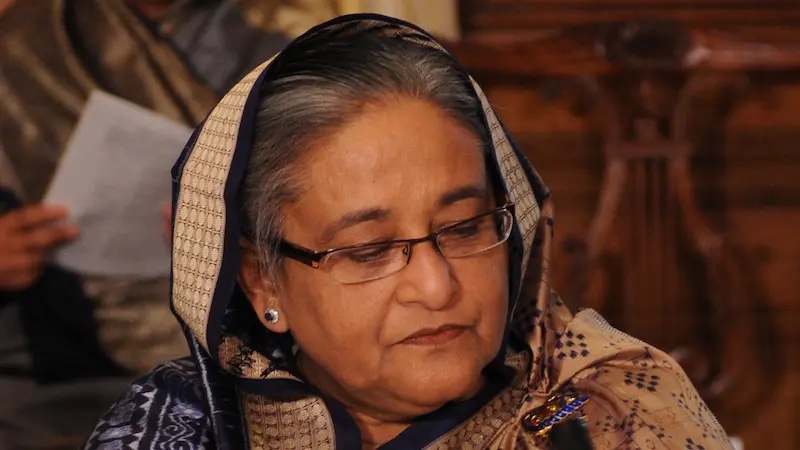The political fabric of South Asia is a twist. Economic, political, and militarily important Bangladesh is one of the focal points in this region. The country’s domestic and foreign policies have been molded accordingly by Sheikh Hasina, who became the longest-serving Prime Minister of Bangladesh. Nevertheless, the fall of Hasina presents questions about what comes next for Bangladesh that could create turbulence in domestic affairs and affect India-Bangladesh relationships, as well as how Pakistan may brace up to face crises.
Sheikh Hasina, the daughter of Bangladesh’s founding father Sheikh Mujibur Rahman, has been at the helm of Bangladeshi politics for over a decade. Her tenure has been marked by significant economic growth, improvements in infrastructure, and a robust stance against Islamist extremism. Under her leadership, Bangladesh has transitioned from a low-income country to a lower-middle-income nation, with aspirations to achieve middle-income status by 2031. Her government’s emphasis on secularism and economic development has garnered both domestic and international support.
However, Hasina’s rule has not been without controversy. Critics accuse her government of authoritarianism, suppressing dissent, and manipulating elections to maintain power. The crackdown on political opponents, including the main opposition party, the Bangladesh Nationalist Party (BNP), has raised concerns about the state of democracy in the country. Despite these criticisms, Hasina has maintained a firm grip on power, supported by a loyal bureaucracy, the military, and a significant portion of the electorate.
The potential political demise of Sheikh Hasina, whether through electoral defeat, resignation, or other means, could create a significant power vacuum in Bangladesh. The BNP, which has been largely marginalized under Hasina’s rule, might attempt a resurgence, but it is unclear whether it has the organizational strength or public support to fill the void. The absence of a strong and credible opposition party could lead to political instability, with various factions vying for power.
Moreover, Hasina’s departure could embolden Islamist groups that have been suppressed during her tenure. The resurgence of these groups could lead to increased violence and a rollback of the secular policies that have been a hallmark of Hasina’s government. This internal instability could have far-reaching consequences for Bangladesh’s neighbors, particularly India and Pakistan.
India and Bangladesh share a long and complex history, with their relationship shaped by geography, culture, and politics. Under Sheikh Hasina, India-Bangladesh relations have been characterized by cooperation and mutual benefit. Hasina’s government has been a reliable partner for India, particularly in matters of security and counterterrorism. The cooperation between the two countries has been instrumental in curbing insurgent activities in India’s northeastern states, as well as in combating Islamist extremism in the region.
Economically, India and Bangladesh have deepened their ties through trade and connectivity projects. The development of infrastructure linking the two countries, such as roads, railways, and ports, has facilitated greater economic integration. Bangladesh is one of India’s largest trading partners in South Asia, and the two countries have worked together on various regional initiatives, including the Bay of Bengal Initiative for Multi-Sectoral Technical and Economic Cooperation (BIMSTEC).
However, the departure of Sheikh Hasina could disrupt this strategic partnership. A new government in Bangladesh might not be as willing to cooperate with India, particularly if it includes elements hostile to Indian interests. The BNP, for example, has historically been more critical of India and closer to Pakistan. A shift in Bangladesh’s foreign policy orientation could complicate India’s security calculations and disrupt ongoing economic projects.
Pakistan, Bangladesh’s western neighbor, has had a complicated relationship with Dhaka since the latter’s independence in 1971. The two countries have maintained diplomatic relations, but mutual mistrust has persisted. Pakistan’s relations with Bangladesh under Sheikh Hasina have been strained, particularly due to Hasina’s pursuit of war crimes trials against those accused of collaborating with Pakistan during the 1971 war. These trials have been a source of tension, with Pakistan viewing them as politically motivated.
From Pakistan’s perspective, the potential political demise of Sheikh Hasina could present both challenges and opportunities. On one hand, a more favorable government in Dhaka could lead to an improvement in bilateral relations. On the other hand, any instability in Bangladesh could have negative repercussions for Pakistan, particularly in terms of regional security and refugee flows.
Pakistan’s crisis preparedness in the context of a changing political landscape in Bangladesh involves several considerations. Firstly, Islamabad would need to monitor the situation closely and be prepared to respond to any shifts in Bangladesh’s foreign policy, particularly if a new government takes a more hostile stance towards Pakistan. Secondly, Pakistan would need to be ready to deal with potential security threats arising from increased instability in Bangladesh, including the possibility of extremist groups gaining a foothold in the region.
Moreover, Pakistan’s broader regional strategy, particularly its relations with India, could be impacted by changes in Bangladesh. Any deterioration in India-Bangladesh relations could complicate Pakistan’s security calculus. Islamabad might seek to exploit any rift between Delhi and Dhaka to its advantage, but this would require careful diplomacy and crisis management.

